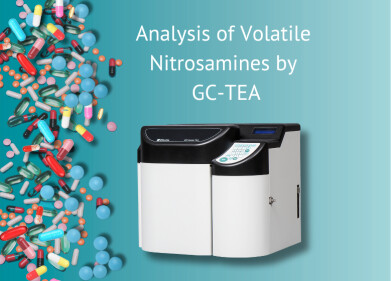Gas chromatography
Chromatography Improves the Antibacterial Effect of Coconut Oil
Mar 14 2018
Essential oils and natural products that have healthy benefits are being used more widely. They are commonly used as flavourings in the food industry and are often found in cosmetic products as active ingredients or as a perfume agent. One of the most popular natural ingredients that seems to have risen from nowhere in the past few years is coconut oil.
We are encouraged to cook in it or use it on our toast in place of butter. Its use in the beauty and cosmetic industry is widespread — with many uses suggested including homemade toothpaste and natural deodorant alongside its use as a moisturizer. Now a recent study published by the Czech Journal of Life Sciences, Prague in the journal — Scientia Agriculturae Bohemica — has looked at how to improve the antibacterial properties of coconut oil.
Coconut oil — don’t shy away from the MCFAs
The World Health Organization note that most of the world’s population use traditional medicine and natural remedies for their medical needs. A situation that has evolved by people simply using what is available to them daily. Plants play a significant role in this — with communities having a long history and much accumulated knowledge in which plants can be used to treat which malady. Coconut oil is one such remedy.
Coconut oil is reported to have been used historically to treat many different maladies ranging from cancer and diabetes to psoriasis. Many of the medical and bacterial properties of coconut oil are attributed to the presence of the MCLAs — medium chain fatty acids. In coconut oil the main three are lauric acid, capric acid and caprylic acid. It is thought that these MCLAs can interfere with the cell structure of bacterium’s and affect their energy production systems — effective killing them off.
Carvacrol — making coconut better?
Carvacrol is found in many essential oils, including oregano and thyme oil, and said to have many health benefits. Carvacrol has demonstrated many antibacterial benefits and some research suggests that it could have a use in killing off some types of cancer cells. With its pleasant taste and colourless appearance, it is seen as ideal for use as a food additive to help stop bacterial growth in food.
The researchers from Prague tested the inhibitory properties of both coconut oil and carvacrol against five commonly found bacterial pathogens. After analysing the MCFA content of the coconut oil using gas chromatography, they also tested the antibacterial effect of a combined coconut oil/carvacrol mixture. Gas chromatography is a powerful technique that is commonly used to analyse unknown samples as discussed in the article, A New Method for Fast Residual Solvents Analysis and Untargeted Unknown Identification Faster Sample Throughput and Shorter GC Runtimes Using GC-VUV and Static Headspace.
Their analysis showed that although both coconut oil and carvacrol were effective against the bacteria, a combination of carvacrol and coconut oil was more effective. So, if you want more power in your coconut oil, add oregano.
Events
May 11 2025 Vienna, Austria
May 18 2025 Tempe. AZ, USA
May 21 2025 Birmingham, UK
Jun 01 2025 Baltimore, MD, USA
Jun 15 2025 Bruges, Belgium


.jpg)











